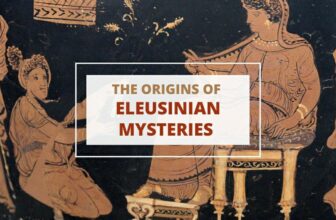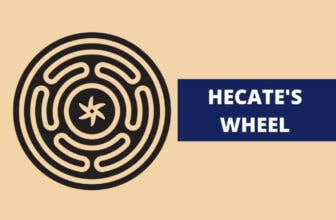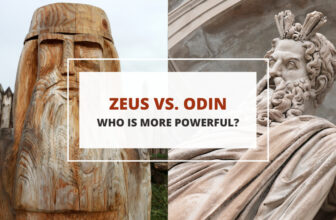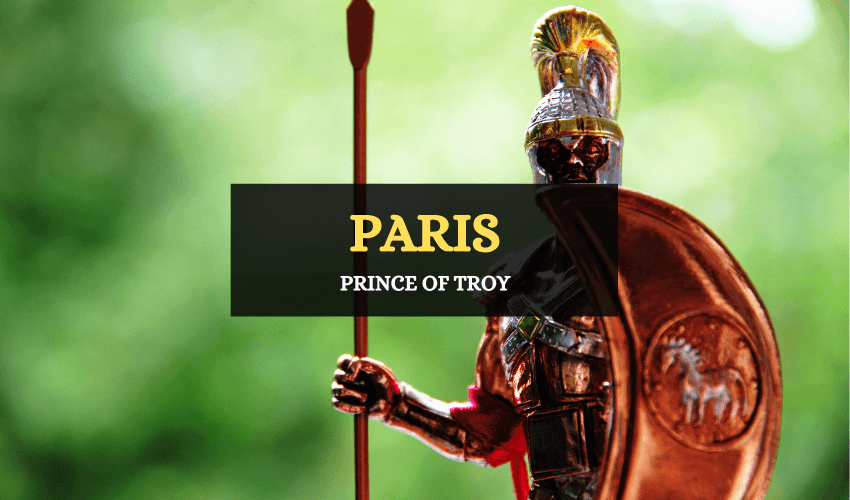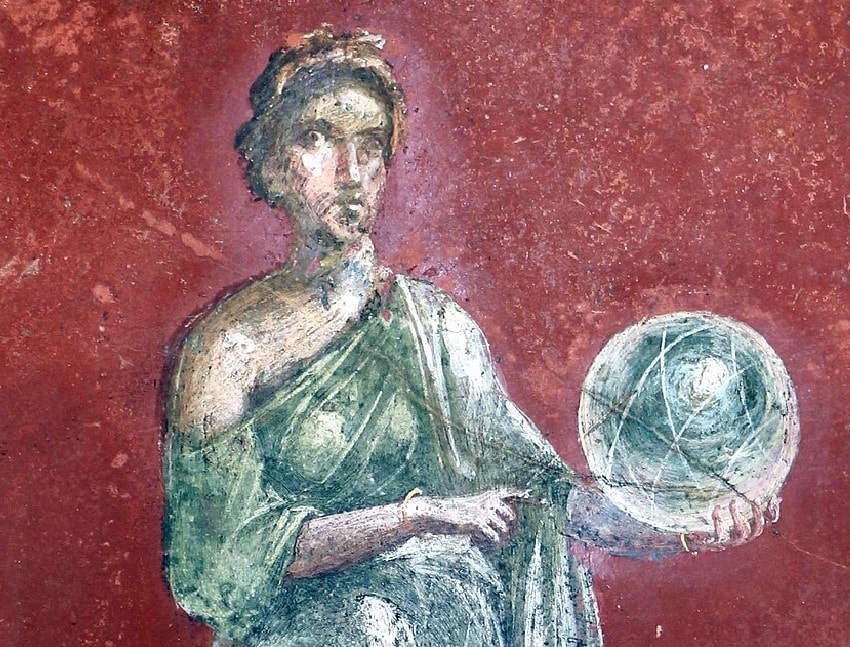
Table of Contents
Urania, also called Ourania, was one of the nine Muses, the daughter of Zeus, and his wife Mnemosyne, the goddess of memory. She was the Muse of astronomy, and is often depicted with a rod in one hand and a celestial globe in her other hand.
Urania was a minor goddess, and since the Muses were always together in a group, she never featured in any of the myths on her own. However, she did appear in many myths of other important characters in Greek mythology along with her sisters.
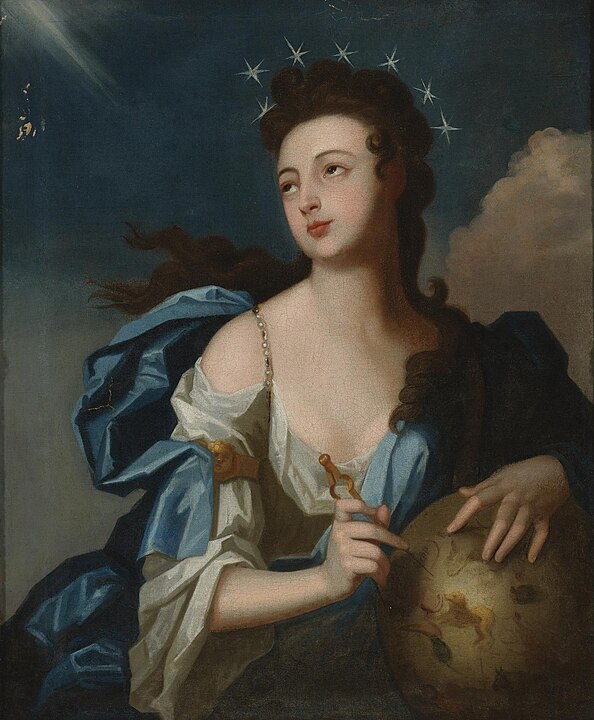
Urania’s Origins
When Zeus, the god of the sky courted Mnemosyne, the beautiful goddess of memory, for nine nights in a row, she became pregnant and had nine daughters on nine consecutive days. Their daughters were collectively called the Muses.
Each one of the Muses was linked to an artistic or scientific component:
- Calliope – heroic poetry and eloquence
- Clio – history
- Erato – erotic poetry and lyrics
- Euterpe – music
- Melpomene – tragedy
- Polmnia – sacred poetry
- Terpischore – dance
- Talia – festivity and comedy
- Urania – astronomy (and mathematics according to certain ancient sources)
Eight of the Muses had mastered arts that were closely connected with life on Earth, but Urania had set her sights higher than her sisters. She was obsessed with astrology and the sky. Since her father was a sky god and her grandfather a god of the heavens, it’s no wonder she had it in her blood. She also possessed some of the authority and power of her forebearers.
Urania was also the granddaughter of her namesake Uranus, the primordial Titan who was the embodiment of the sky. Like her sisters, Urania had inherited her mother’s beauty and she was a kind and soft spoken goddess who was much loved by everyone around her.
According to some sources, Urania was the mother of Linus, by Apollo or Amphimarus, who was Poseidon’s son. Other sources state that she had another son called Hymenaeus who was the god of marriage in Hellenistic religion. It’s not exactly clear whether Linus and Hymenaeus were actually Urania’s sons since they’ve also been mentioned in ancient literature as sons of the other Muses (mainly Calliope). However, the most common sources state that they were Urania’s children.
Urania’s role in Greek mythology was to entertain the other Olympian gods and goddesses with her sisters. They performed songs and dances and retold stories that were mainly centered around the greatness of their father, Zeus, the supreme god. Although Urania’s home was on Mount Helicon, she spent most of her time with the rest of the Muses on Mount Olympus, where they were mostly seen in the company of Dionysus and Apollo.
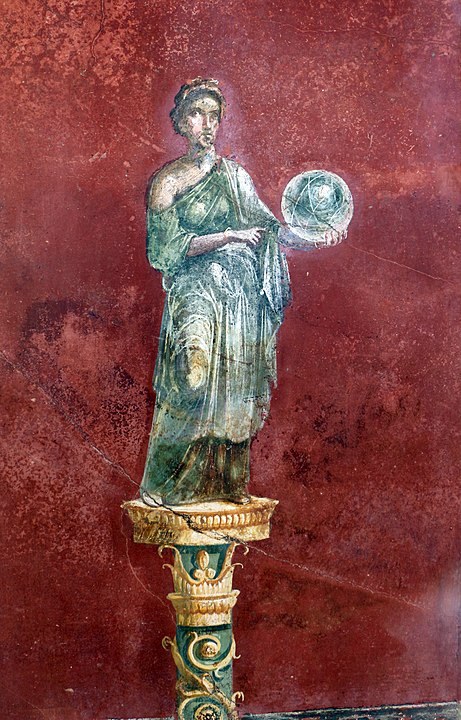
Urania As the Goddess of Astronomy
Urania’s name, also written as ‘Ourania’ in Ancient Greek, literally means ‘of heaven’ or ‘heavenly’ which is fitting with her role as muse of astronomy.
In later literature, Christian authors in Europe often used Urania as a symbol or allegory in their poetry and works, reflecting the heavenly inspiration she represented. She was also said to possess the gift of prophecy. She could tell the future by looking at the arrangement of the stars. The practice of astrology readings that we know of today is said to have begun with Urania.
Urania inspired the development of fine and liberal arts in Greece during the ancient times and according to the ancient beliefs and traditions, the Greek astronomers would always invoke her aid in their work by praying to the goddess for divine inspiration.
Urania’s Symbols
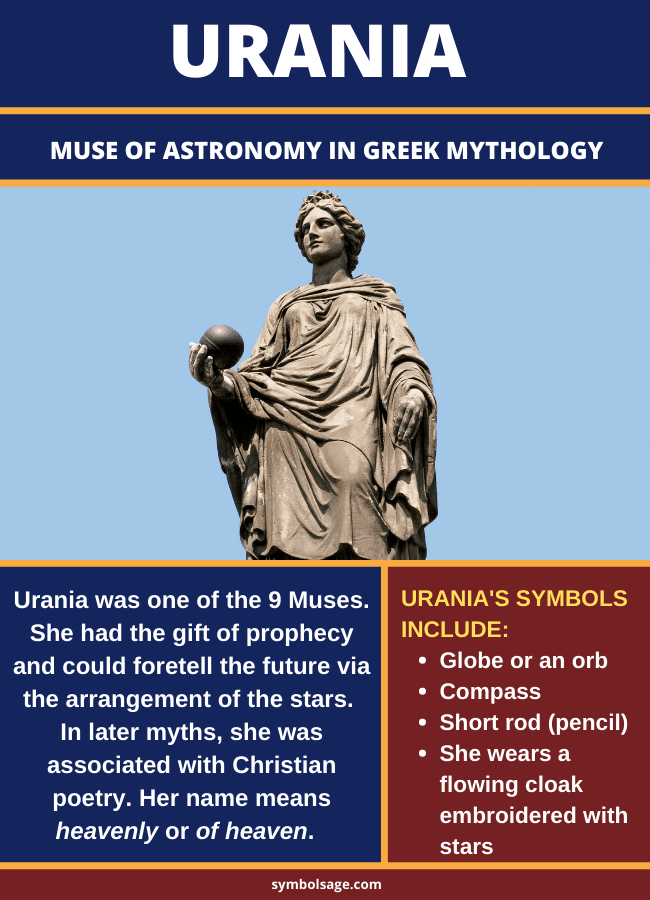
Urania is often depicted as a beautiful young maiden with a flowing cloak embroidered with stars draped around her. The compass and the globe she carries are symbols that are unique to her and she also carries a short rod (some say that it’s a pencil). The goddess of astronomy is easily identified by these symbols.
Urania in the Modern World
Urania’s name is famous in modern world, in popular culture and literary texts. The planet Uranus was partially named after the goddess. She has been mentioned in many literary works, including Adonais by Percy Bysshe Shelley, Paradise Lost by Milton, and To Urania by Joseph Brodsky.
Urania’s name has been featured in magazines, sports halls and sons. A popular female rock band in Honduras, Central America is called Uranus.
In Brief
While Urania isn’t a highly popular character of Greek mythology, as one of the Muses, she was noteworthy. Although she didn’t feature in any significant myths, her name continues to resonate with the modern world.




